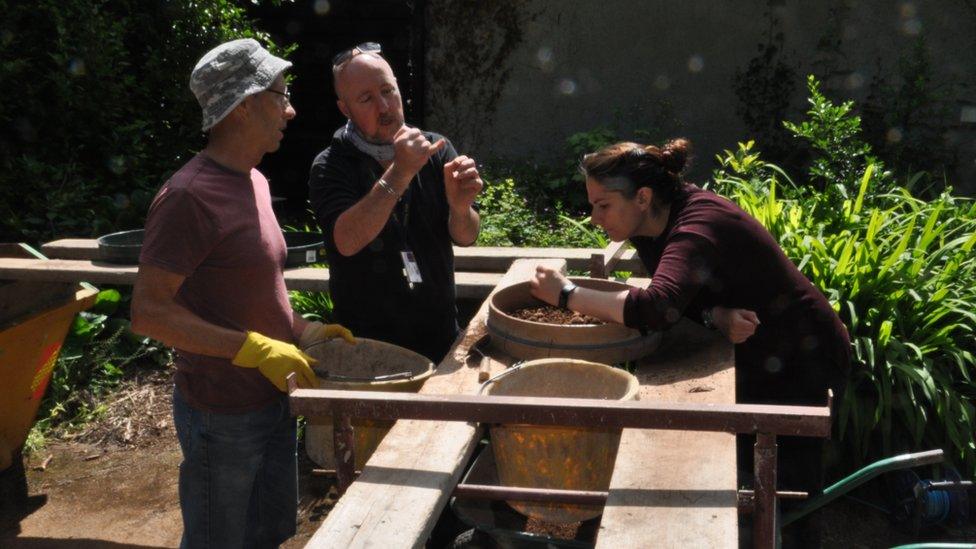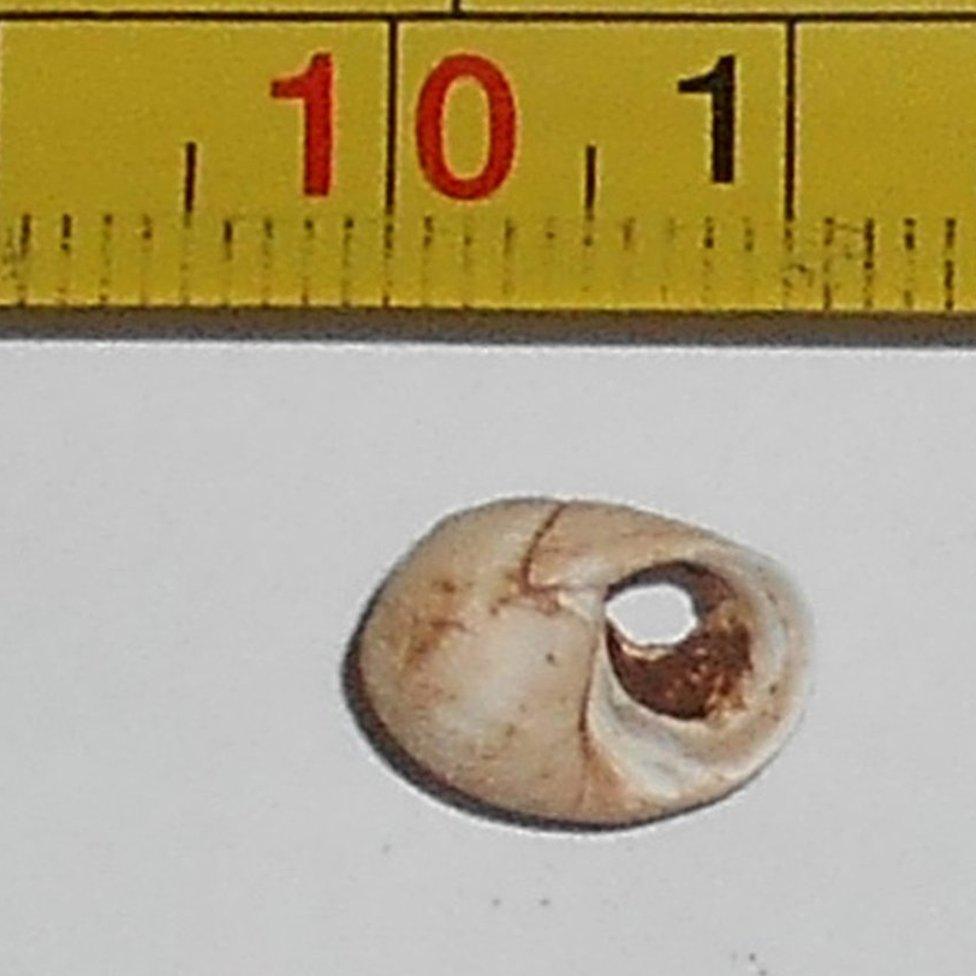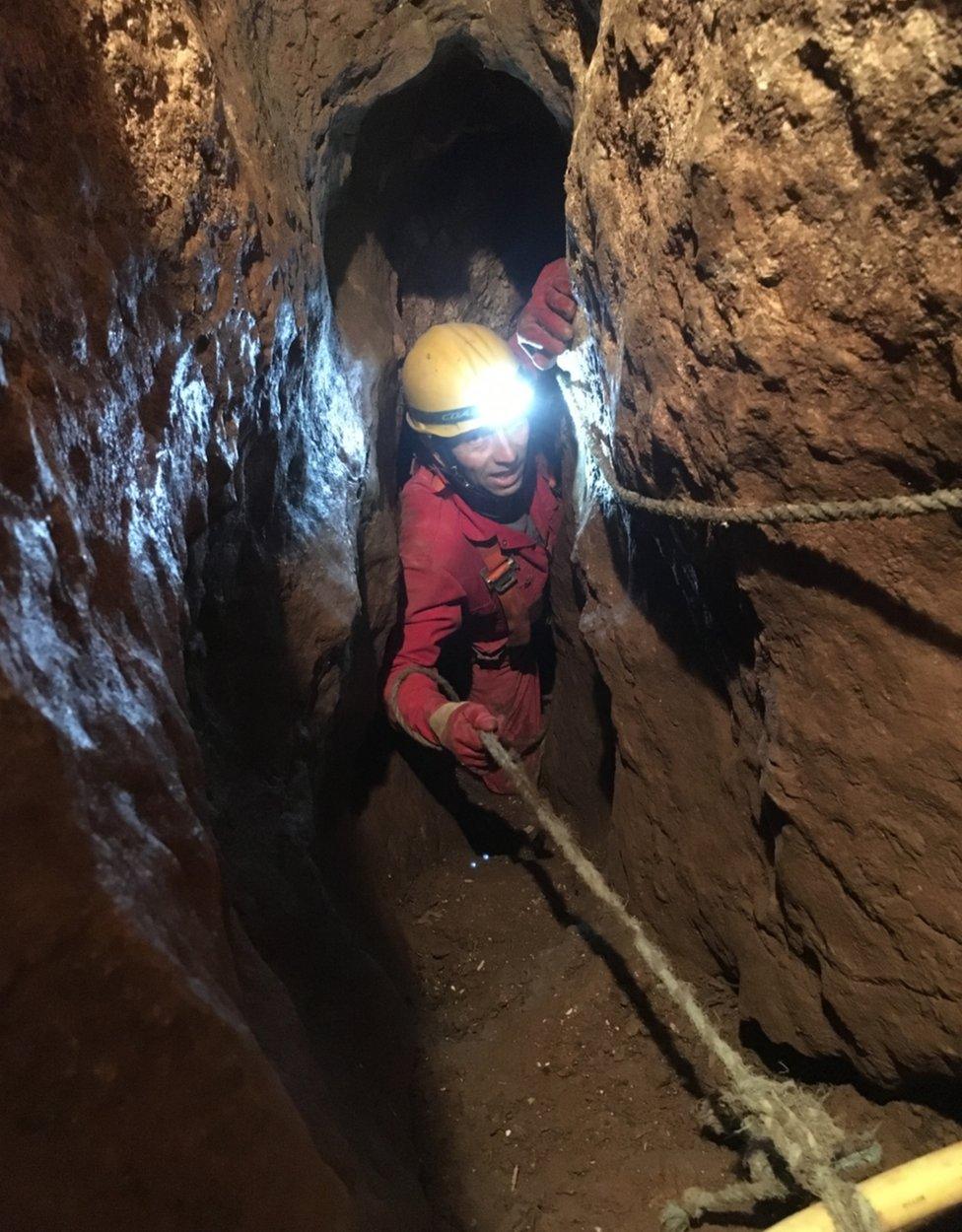Cumbria cave remains belong to 'oldest northerner'
- Published

Analysis of material discovered in the cave found some of it was much older than estimated
Human remains unearthed in a cave in Cumbria have been dubbed the "oldest northerner" after being found to date back 11,000 years.
Bone and a shell bead discovered at Heaning Wood Bone Cave, near Great Urswick, were analysed by the University of Central Lancashire.
Dr Rick Peterson said the site had been used for burials.
He described it as evidence of "some of the earliest dates for human activity" in northern Britain after the Ice Age.

A periwinkle shell bead was one of the discoveries found to be about 11,000 years old
The site had been excavated since 2016 by local archaeologist Martin Stables with the university brought in to "try to interpret the evidence".
Dr Peterson, who teaches archaeology and cultural anthropology, led the academic team.
He said several bodies from the cave had been dated and the group was amazed when one set of remains was found to be much older than thought.
"The caves have been dug before, in the 1950s, and work by Liverpool John Moores University about 10 years ago dated some of the material to the early Bronze Age [about 4,000 years ago].
"There were at least eight people buried in this cave. Some of them came back [dated] from the Bronze Age, some of them were Neolithic which is about 6,000 years ago.
"One individual and one piece of shell bead buried with him came back with a date roundabout 11,000 years ago which is astonishingly early for the north.
"To put it in perspective, the last Ice Age lasted until about 11,600 years ago. After that period, the global temperature warmed rapidly over about 100 years to give us the climate we've got today.
"These people are just about as early as we could expect them to be - the pioneers reoccupying the land after the Ice Age."

Archaeologist Martin Stables has been excavating the site since 2016
Earlier human remains have been discovered in southern England and Wales but the destructive effect of past glaciations means such finds are rare in northern Britain, the university said.
Before this discovery, the "earliest northerner" was a 10,000-year-old burial from the nearby Kent's Bank Cavern discovered in 2013.

Follow BBC North East & Cumbria on Twitter, external, Facebook, external and Instagram, external. Send your story ideas to northeastandcumbria@bbc.co.uk, external.
Related topics
- Published13 June 2022
